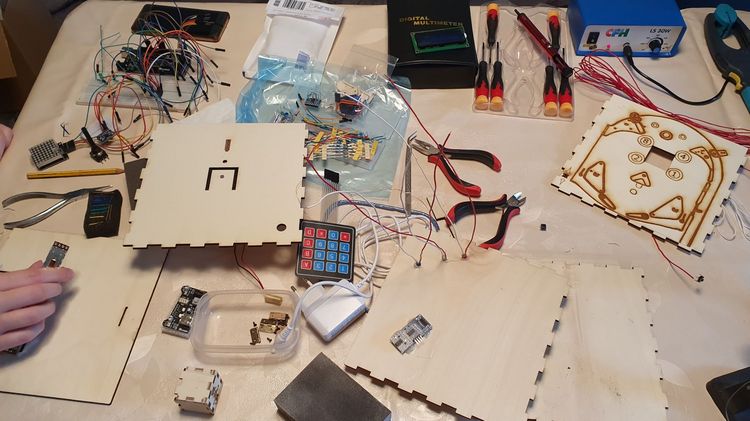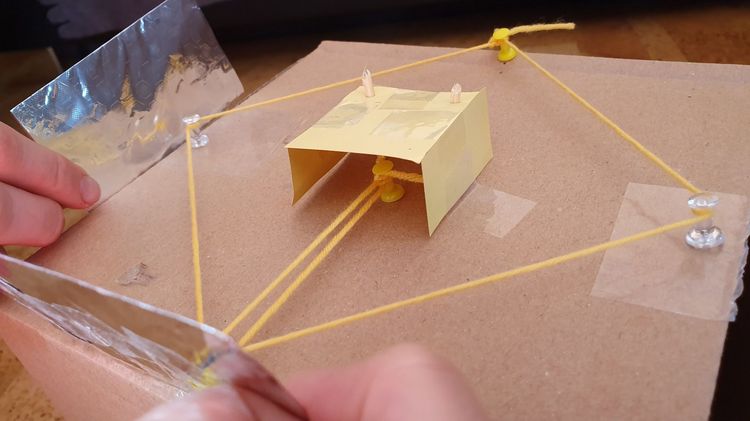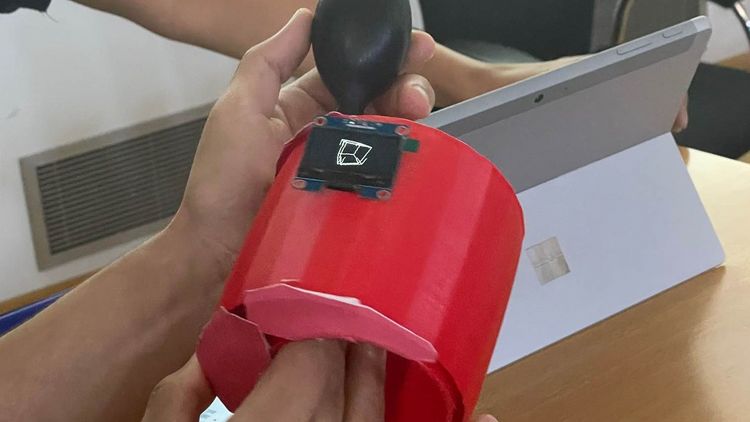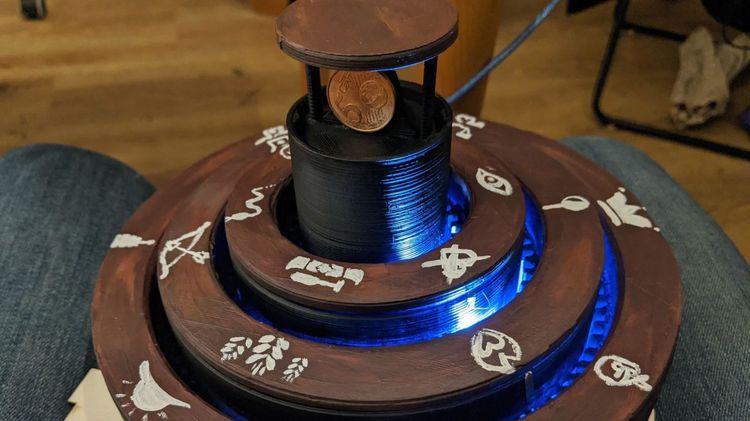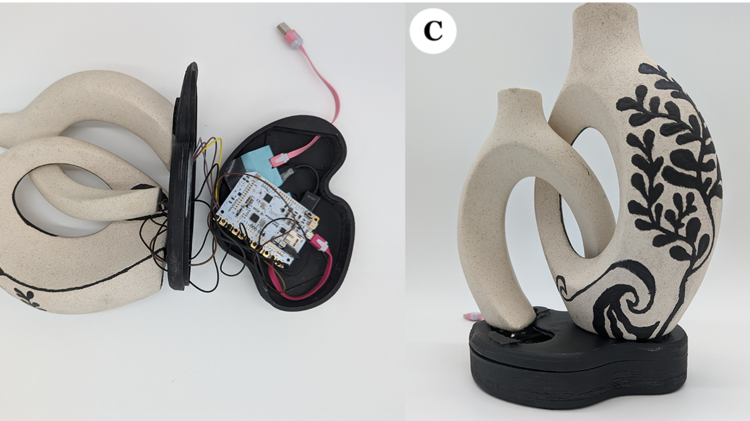Maker's Lab
Maker's Lab
| Module code | inf174 |
| Lecture language | English |
| Target group | Master |
| Field | Practical Computing Science |
| SWS | 2 + 2 |
| ECTS | 6.0 |
Maker’s Lab is a practical, hardware-oriented, group-based course focused on designing and building interactive physical systems. Working in teams of 2–3, students develop functional prototypes inspired by contemporary research in Human-Computer Interaction (HCI), with project topics ranging from shape-changing interfaces and wearables to smart home technologies and the Internet of Things (IoT).
Students follow an iterative, user-centered design process, starting from a problem statement and refining their concepts based on the regular feedback from lecturers, project supervisors and from potential users. Through this prototype-driven approach, students gain hands-on experience with rapid prototyping techniques and learn to understand hardware not just as a technical component, but as a user interface, which is shaped by both fabrication constraints and requirements of the interactions.
A key component of the course is the “Quick’n’Dirty” (QnD) prototyping session, held early in the semester. Using craft and household materials, students create their first low-fidelity prototypes. This playful, low-pressure approach encourages brave ideas and helps students to engage with the physical aspects of their projects without getting overly concerned with technical complexities.
Final projects are then implemented using Arduino microcontrollers, a broad selection of sensors and actuators, and prototyped with laser cutters and 3D printers. The course emphasizes collaboration, creativity, and real-world application.
Module Content
Learning objectives of the module
The aim of the module is to integrate the latest developments in the field of “Media Informatics and Multimedia Systems” appropriately into a course of study.
PROFESSIONAL COMPETENCES
The students
- define and contrast special themes in computer science, and reflect on computer science practices in general.
- recognize and evaluate applied techniques and methods and their limits
- identify, structure and solve problems/tasks, in new or developing subject areas
- apply state of the art and innovative methods to solve problems, if necessary from other disciplines
- recognize current limits and contribute to the development of computer science research and technology
- discuss and evaluate recent computer science developments
METHODOLOGICAL COMPETENCES
The students
- evaluate and apply tools, technology and methods and utilize them appropriately
- combine new and original approaches and methods creatively
- reflect on problems/tasks, including new or developing subject areas in their discipline and apply computer science methods for investigation and resolution
SOCIAL COMPETENCES
The students
- integrate their skills in a team environment.
SELF-COMPETENCES
The students
- pursue the further development of computer science in general and in this particular sub-field critically
- innovatively conduct professional activities effectively and independently
Enrollment
Classification in the curriculum
This module is an elective module in practical Computing Science. The module is offered as a lecture with an accompanying practical project totalling 6 ECTS credit points (2VL + 2PR). The expected workload is 180 hours with an expected attendance time of 56 hours. The module is designed as a Master's module and involves considerable independent project work in small teams.
We recommend attending at least one of the following modules before enrolling for this course:
- inf175 „Physical Computing”, which offers a more comprehensive introduction to techniques in rapid prototyping and digital design and fabrication.
- inf100 „Human-Computer Interaction”, which offers a more comprehensive introduction to the fundamentals of HCI and human-centered design.
Enrollment
Registration for the module takes place in the first semester weeks via the learning management system Stud.IP. The students will receive detailed information on attendance, tasks and dates in the first course at the beginning of the semester as well as in the learning management system Stud.IP.

